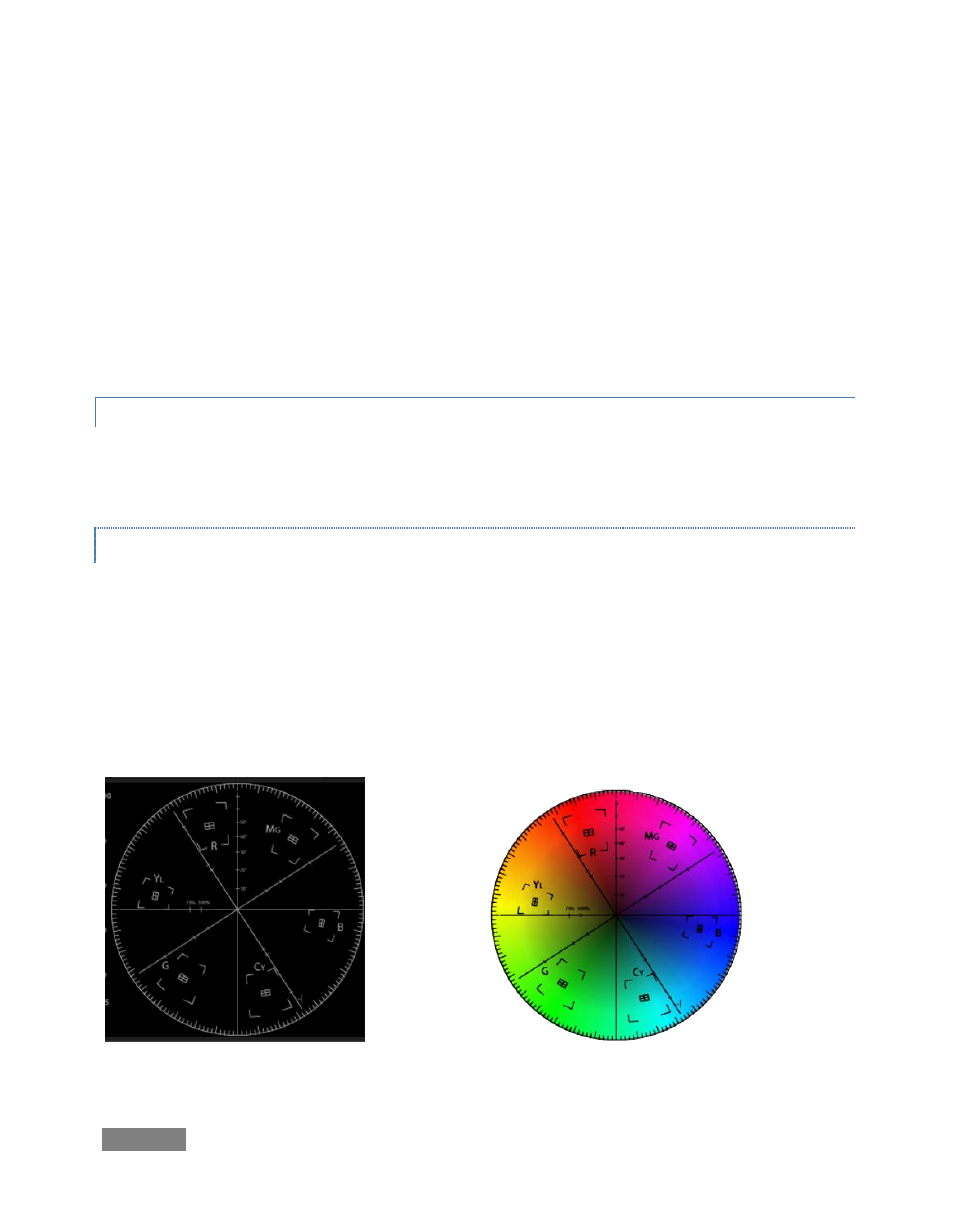D.2.2, Adjusting color – NewTek TriCaster Studio User Manual
Page 272

Page | 252
If not, you might try using your camera’s Auto White Balance feature with the white card – your
camera manual will provide instructions. Afterwards, check the black level again. Some more
professional cameras offer full manual controls for white balance and/or black level. Use these
as instructed to ensure your camera is providing the correct white and black levels.
If you cannot make source adjustments, or can’t get it quite right by these means along, you can
use the Brightness and Contrast controls in the Proc Amp TriCaster provides for that input to
tweak black and white levels. (Of course it is always best to perform adjustments at the source if
possible.)
D.2.2 ADJUSTING COLOR
We’re going to move into color calibration next, but first we can actually use our black and white
signals for some further tests.
VECTORSCOPE
While we’re still working with black and white levels, we can introduce TriCaster’s Vectorscope,
and perform an initial test of the camera’s color balance.
A vectorscope (Figure 237) can be likened to the familiar ‘color wheel’ (Figure 238) which sweeps
radially through the colors of the spectrum – yellow, red, magenta, and so-on, around the arc of
a circle. Colors are more progressively intense (saturated) towards the outside of the circle,
while color saturation is zero at its center.
Figure 237
Figure 238